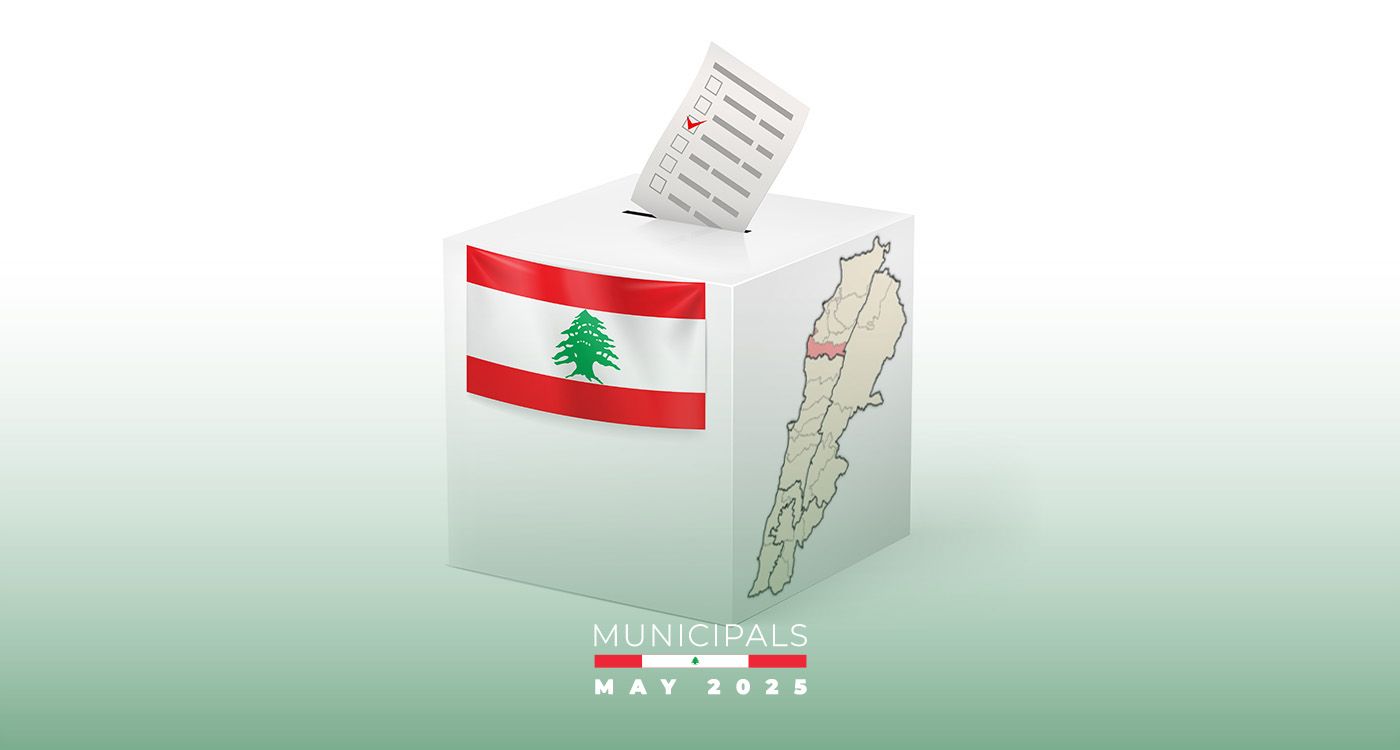- Home
- Highlights
- Batroun at the Ballot: Power Struggles, Family Loyalties and Political Shifts

Following a smooth first round of municipal elections on Sunday, May 4, electors in Batroun and across North Lebanon will head to the polls on Sunday, May 11, to elect municipal councils and mukhtars.
In a governorate comprising 31 municipalities, Batroun-city holds particular attention as the second-largest municipality after Tannourine, with 15 council seats. Known for its vibrant cultural scene and growing tourism sector, Batroun has become a focal point in the region, highlighting the need for transparent and effective local governance.
Political Unity or Strategic Alliance?
In Batroun-city, caretaker municipal council president and head of the Batroun Federation of Municipalities, Marcellino El Harek, is seeking a renewed mandate under the “All for Batroun” list. El Harek, a close ally of Free Patriotic Movement (FPM) leader MP Gebran Bassil, is heading a list that notably brings together candidates from traditionally rival political groups—Lebanese Forces (LF), FPM and Marada.
The list’s program emphasizes local development, education (including the establishment of a technical high school), culture, sports and handicrafts. For the first time, it includes an Armenian representative, signaling a more inclusive approach.
Despite the show of unity, criticisms have emerged over what some see as excessive political control and a lack of transparency in forming the list. An opposing bloc, “Batroun Loyalists,” still in the process of finalizing its candidates, has voiced concern over the politicization of the vote and called for elections based on programs, not party alliances.
In the Villages: A Different Battle
Outside Batroun-city, the dynamic is markedly different. In the district's villages, elections are shaping up as fierce contests, less along partisan lines and more within local family rivalries. While political parties attempt to assert their influence, longstanding familial ties often prevail.
In villages like Assia, Chatine and Deir Bella, even candidates from the same party are competing against each other, exposing deep-rooted family divisions. In some cases, clan loyalty outweighs political affiliation, even in areas where one party, such as the LF, has a dominant presence.
This local dynamic is fueling resistance to what many see as political interference in municipal affairs. In Kfour, for instance, the LF has been accused of imposing its choices without local consultation, prompting some figures to join forces with the FPM in a bid to restore balance and protect local autonomy.
Chekka: A Legacy Contested
In Chekka, one of the wealthiest municipalities in the district, the electoral scene is marked by a clash of family legacies. A list backed by the LF and Kataeb is running against one led by Skandar Farjallah El-Kfoury, son of the longtime municipal president, and supported by the FPM and Marada.
Though the race appears political, the underlying conflict is steeped in family influence. Opponents of the outgoing president, who has held office for 27 years, are calling for an end to what they describe as a clientelist system and are seeking generational change.
Chekka, which is not part of the Batroun Federation of Municipalities due to its refusal to contribute financially, is also under scrutiny for environmental issues. The town is home to several cement factories and has been criticized by NGOs for illegal sand extraction along its coastline.
Tannourine: Winds of Change
In Tannourine, the district’s largest municipality with 18 council seats, a different mood is taking hold. A fresh list composed mainly of young candidates and women, supported by Majd Harb and the LF, is running against a coalition of independents and figures close to the FPM.
While the LF remains the frontrunner, the emergence of new faces points to a shift toward modernization and renewal in local politics. Harb’s list has long been a dominant force in Tannourine, even overcoming the FPM-LF alliance during the 2016 elections.
Douma: From Consensus to Competition
In Douma, where the municipal council comprises 15 members, elections were initially expected to be uncontested, with a list led by Zeina Ayoub gathering support from all sectors of the town. However, the last-minute entry of individual candidates has turned the process into a competitive race.
From Exclusion to Inclusion
In a notable development for women’s political participation, ten women from the Batroun district have registered to run in the upcoming municipal elections in their towns of origin, despite being married and officially residing elsewhere. This was made possible by a recent amendment (Law 324/2024) to Article 25 of Law 61/2017, which now grants married women the right to run for office either in their husband's municipality or their own hometown.
Until now, the legal framework effectively barred many married women from contesting elections in their native towns if their civil registration had been transferred to their husband's locality, a longstanding barrier that limited their role in local governance.
A Tale of Two Realities
While Batroun-city presents an image of cross-party unity focused on development, the surrounding villages reflect a more fragmented reality. Here, electoral battles are driven by family loyalties, and political parties must often contend with entrenched local traditions where surnames carry more weight than slogans.

Comments